Editor's Note: From March 10 to 21, 2025, the 69th Session of the United Nations Commission on the Status of Women (CSW69) was grandly held at the United Nations Headquarters in New York. Zhang Yinjun, Founder and Chairperson of the Beijing Changier Education Foundation, led a delegation to attend the event and delivered speeches at multiple significant occasions, sharing China’s practical experience in adolescent health education, gender equality, and women's empowerment with the world. She demonstrated the responsibility and commitment of Chinese social organizations in advancing the global women's cause.
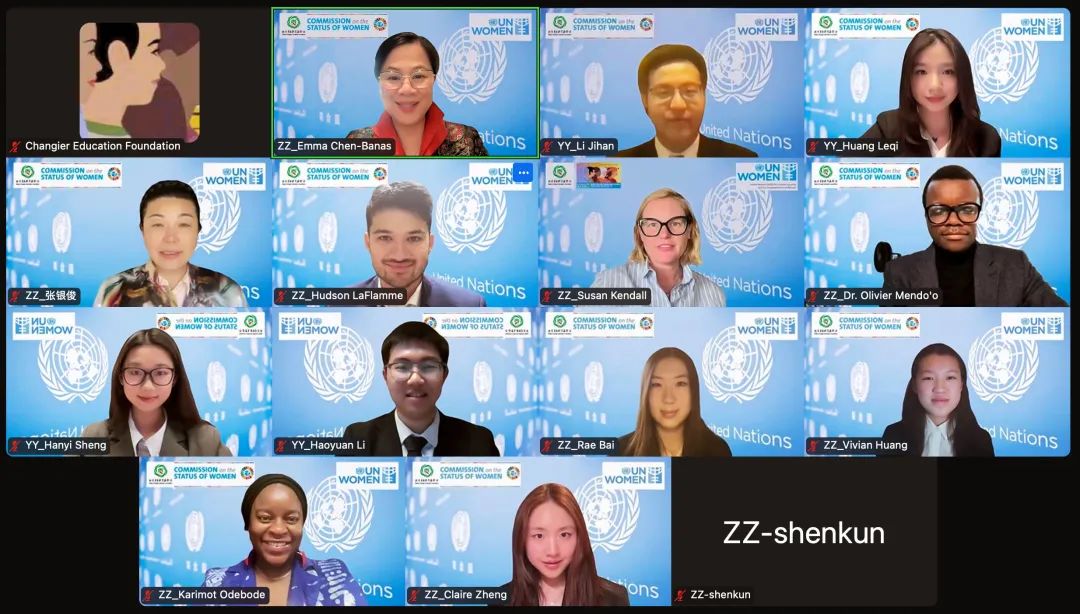
On March 19, during their participation in CSW69 at the UN headquarters in New York, the Beijing Changier Education Foundation organized an online parallel event themed "The Responsibility Framework for Establishing Equal Commitments." The event invited global experts, public welfare leaders, and youth representatives to discuss topics such as "establishing a responsibility framework for equal commitments," "turning gender equality from aspiration into action through accountability," "inclusion and responsibility," "healthcare equity," and "the healing power of music." The event also featured an interactive Q&A session exploring themes like "how nonprofit organizations view collaboration between businesses and NGOs." The event lasted nearly three hours, attracting nearly 300 attendees who engaged actively through frequent comments and posts.
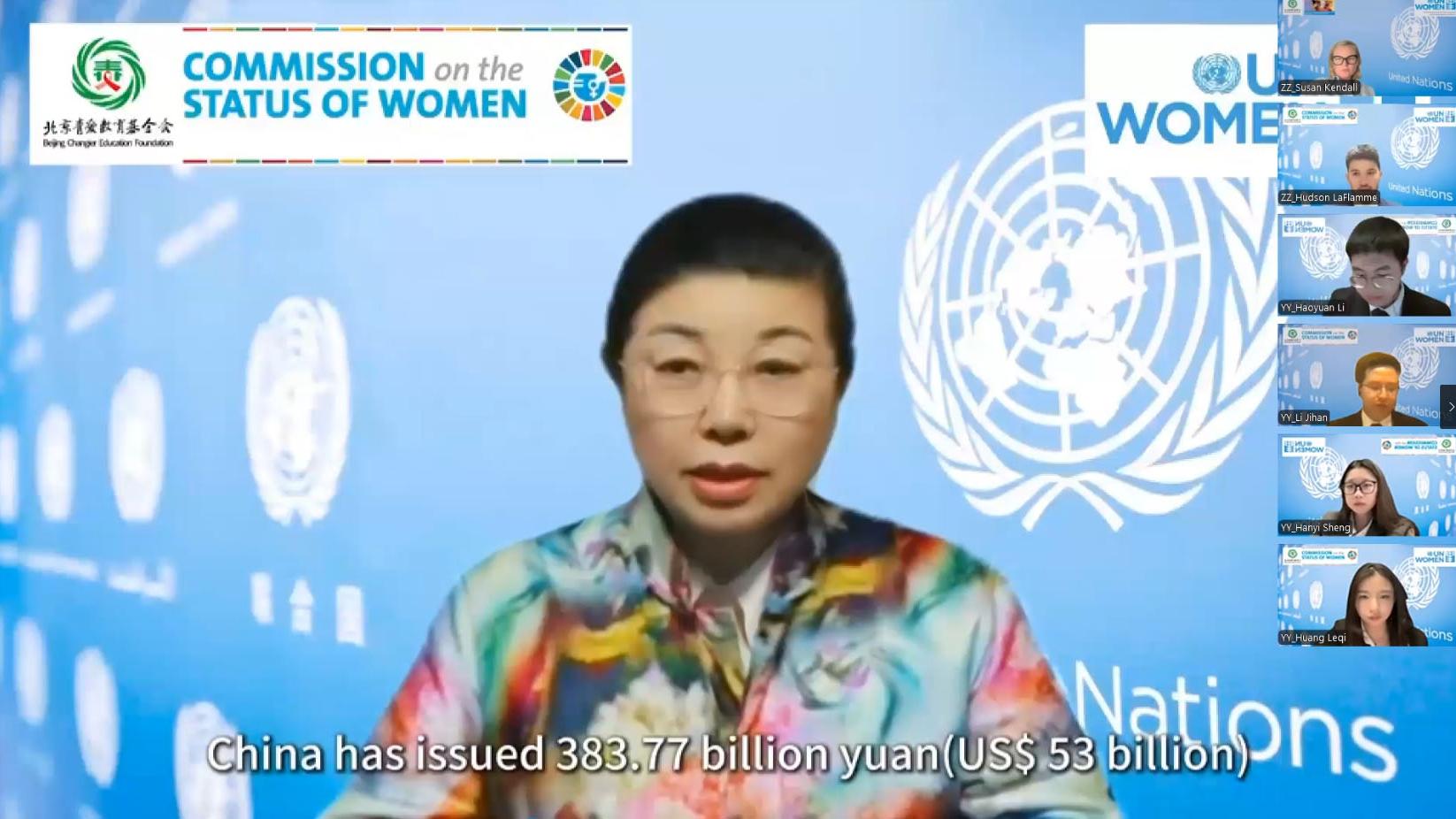
Zhang Yinjun – Founder and Chairperson of the Beijing Changier Education Foundation
Zhang Yinjun is the founder of China's adolescent AIDS prevention education program and the Beijing Changier Education Foundation. She is a renowned philanthropist with a deep commitment to both national and global responsibilities, nurtured by Chinese culture. Leading a top-tier 5A public welfare team in China, she has dedicated 20 years to promoting women's and children's health and educational equity, benefiting billions in China and worldwide. Zhang has been honored with multiple awards, including the "International Women's and Children's Education Achievement Award" and the "Global Love of Life Medal."
To ensure that equal commitments translate into meaningful actions and tangible outcomes, Zhang emphasized the importance of establishing accountability mechanisms from a global perspective. She proposed three key action initiatives: 1. Establishing a Legal Protection System: Nations must enact anti-discrimination laws, develop policy evaluation mechanisms, and create a multinational network of legal experts to implement the best legislative practices for gender equality. 2. Developing a Data Monitoring Platform: A global gender equality digital dashboard should be created to track key indicators such as girls’ school enrollment rates and women’s political participation. Ensuring real-time monitoring will help identify gaps and allocate resources effectively. 3. Strengthening Grassroots Empowerment Mechanisms: A dedicated platform should be established to amplify the voices of women and children, monitor policy implementation, and support community-driven initiatives that address education, healthcare, and economic opportunities.
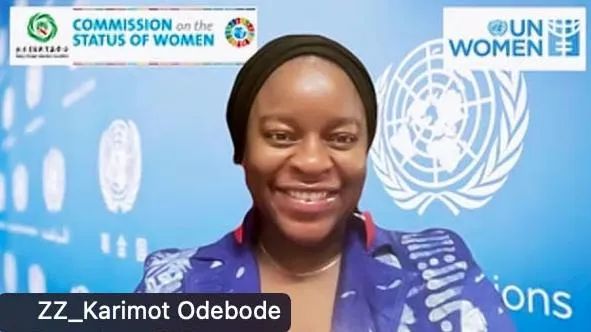
Karimot Odebode – One of the 17 United Nations Sustainable Development Goals (SDG) Young Leaders
Karimot Odebode, a distinguished lawyer, education advocate, and poet from Ibadan, Nigeria, holds a master's degree in education policy and analysis from Harvard University. She is dedicated to promoting global educational equity and is the founder and project director of the "Black Girl’s Dream Initiative," which focuses on empowering young women.
During her compelling speech, "Beyond Commitments: Holding the World Accountable for Equality," she underscored the crucial role of accountability in gender equality. She delivered a powerful critique of systemic issues in Africa, stating: "A lack of accountability is not just an administrative failure; it is a betrayal. It means girls are denied quality education; it means child marriage persists; it means women still struggle for equal pay, trapped in a cycle of economic oppression; it means discrimination festers behind unfulfilled promises."
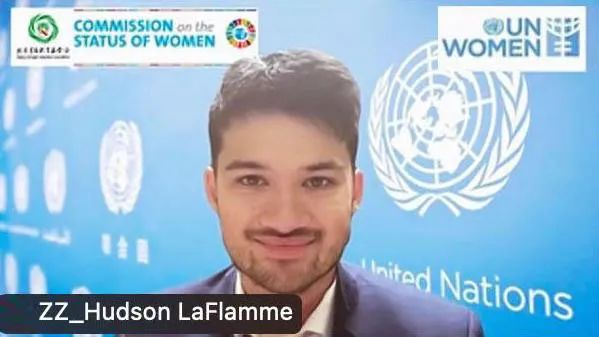
Hudson LaFlamme – Nursing Student at Elms College
Hudson LaFlamme, known for his academic excellence and clinical expertise, has been involved in innovative research at Massachusetts General Hospital-Brigham and has demonstrated outstanding leadership as vice president of the student government and an active member of the Nursing Student Association.
In his speech, "Healthcare Should Not Be a Privilege: Advocating for Global Equity and Sustainable Solutions," he shared his firsthand experience participating in medical relief efforts in Jamaica. He highlighted the dire challenges faced by healthcare workers in impoverished communities and proposed solutions from three perspectives: Moving Beyond Short-Term Aid, Empowering Local Healthcare Providers, Establishing Reliable Supply Chains.
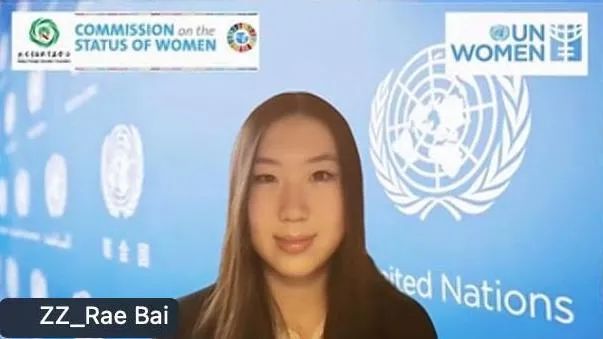
Rae Bai – Computer Science and Economics Student at New York University
Rae Bai shared her experience volunteering as a guide for blind runners and co-creating accessible reading materials with visually impaired students. She redefined "inclusion" as a collaborative creation of environments rather than one group helping another.
As a student of computer science and economics, she firmly believes that in the digital age, technology can be a powerful tool for breaking barriers—provided it is designed with inclusivity at its core.
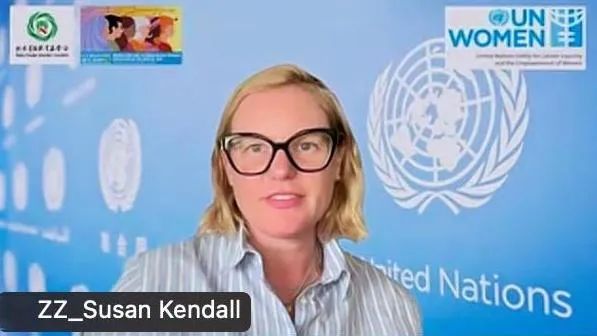
Susan Kendall – Gender Expert, Master’s in Education, Gender & International Development from University College London
With over a decade of experience designing and implementing gender equality projects, Susan Kendall has supported UNICEF Kenya’s education programs and served as a gender advisor for the UK Foreign, Commonwealth & Development Office's "Girls’ Education Challenge" project.
She explored the topic of gender accountability in equality commitments and urged that accountability mechanisms transform gender equality from a goal into concrete action. She outlined several strategies, including: Integrating gender-sensitive indicators into monitoring and evaluation frameworks; Conducting gender audits to identify gaps and mainstream gender considerations; Ensuring gender-specific budgeting in policy implementation; Encouraging active participation of women and girls in program design and evaluation; Engaging men as allies in challenging harmful gender norms.
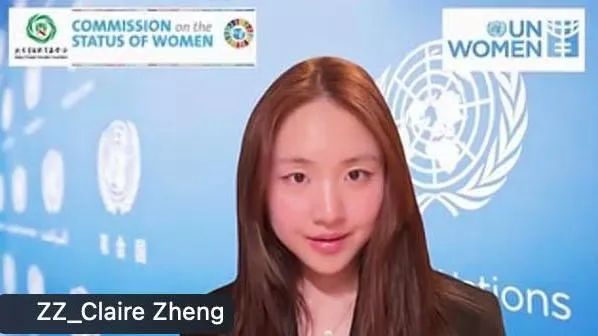
Claire Zheng – Musician, High School Student at Blair Academy
Raised in Beijing and studying in the U.S., Claire Zheng brings a global perspective to social issues. A skilled cellist with over a decade of experience in composition and performance, she posed thought-provoking questions: "Can music bridge divisions? Can it restore harmony in a fragmented world?" She argued that music has always been a bridge during times of war and conflict, providing solace and fostering resilience for peace. Research shows that music therapy alleviates PTSD symptoms, enhances emotional resilience, and reignites hope. She called for: 1. Cross-cultural collaborations through virtual workshops and online performances; 2. Music as a call to action, citing John Lennon's Imagine and Michael Jackson's Heal the World as examples; 3. The promotion of music therapy to help refugees and trauma survivors.
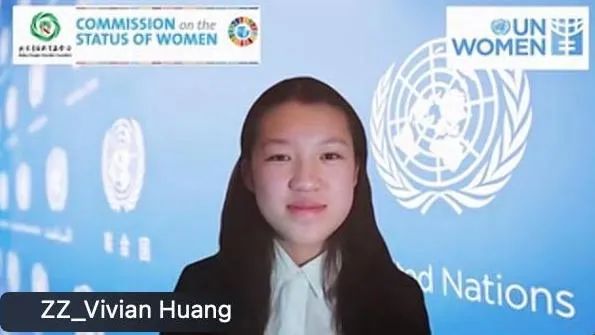
Vivian Huang – High School Student at Hopkins School, Connecticut
Fluent in English, Mandarin, and French, Vivian Huang excels in STEM subjects and is captain of her school’s track team. She leads the environmental and beekeeping club and serves as the Connecticut chapter head of Curvy Girls Scoliosis Organization, supporting girls with scoliosis. In her speech, "Turning Inequality into Action: A Student’s Call to Empower Women in Urban Slums," she proposed the "WEEVI" Five-Step Empowerment Model: Water (W)\Education (E)\Economic Empowerment (E)\Voice (V)\Innovation (I). She also shared creative solutions such as rainwater collection kits and vertical farming manuals to improve living conditions in slums.
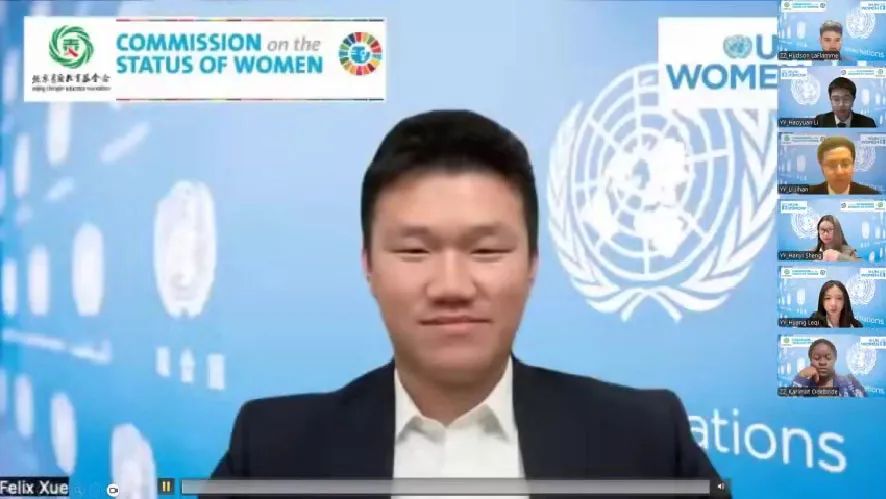
Jiachi Xue, an undergraduate student majoring in Computational Neuroscience and Business Administration at the University of Southern California.
Jiachi Xue shared insights from his leadership role as the Diversity, Equity, and Inclusion (DEI) Officer in a student organization at USC. He explained that the DEI Officer is responsible for overseeing the selection process to ensure that application evaluations are fair and impartial, eliminating discrimination based on race, gender, or background. Additionally, the role involves ensuring that the organization maintains an inclusive environment and addressing any violations of ethical standards through accountability measures. He emphasized that accountability for equality is not merely a policy or a statement but a commitment that requires continuous action and practice. He highlighted the DEI mechanism on campus as a clear and effective example of such accountability and called for its broader implementation in both academic and social settings.
The panelists actively engaged with the audience’s enthusiastic questions during the side event. One particular question directed at Ms. Zhang Yinjun drew significant attention: "As a leader of a nonprofit organization, how do you view the collaboration between businesses and nonprofits?" Ms. Zhang Yinjun responded: "I believe that the collaboration between businesses and nonprofits is a crucial pathway to co-creating social value. This partnership is not just about resource complementarity but also serves as a key driver of sustainable development and social innovation. The core value of such collaboration lies in leveraging each other’s strengths to amplify social impact, achieving a ‘win-win’ outcome while driving systemic change. When corporate influence is combined with the social mobilization power of nonprofits, it can more effectively drive policy improvements and industry standard upgrades. This synergy enables large-scale solutions in areas such as policy development and the protection of vulnerable groups' rights." Regarding the concept of Shared Value, Ms. Zhang further elaborated: "At its core, the collaboration between businesses and nonprofits is the fusion of ‘business for good’ and ‘professional philanthropy.’ Philanthropy infuses businesses with a soul, while corporate support gives wings to nonprofit organizations. A successful partnership requires more than a simple exchange of resources—it necessitates a trust-based relationship where both parties work together to explore innovative solutions to social challenges. As a nonprofit, we must remain true to our mission and maintain our independence while also embracing cross-sector collaboration with an open mind, ensuring that every contribution can help create greater possibilities for society."
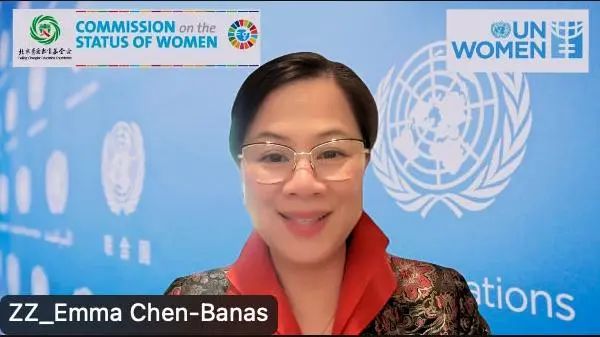
Emma Chen-Banas, United Nations Representative and Chief Administrative Officer of the Beijing Changier Education Foundation, as well as Honorary President of the Chinese-American Federation of Massachusetts, along with numerous Changier International volunteers, made significant contributions to the preparation, organization, and successful execution of the conference.
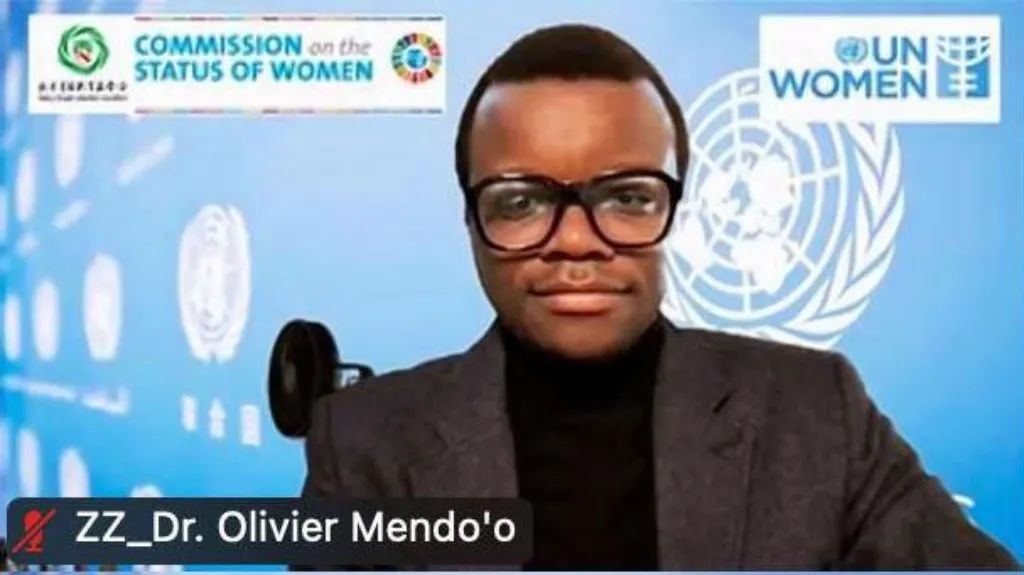
Joseph Olivier Mendo’o, Head of the African Youth Delegation in China, PhD in Law from Peking University, and Chief Volunteer of Changier International, chaired the conference. Li Haoyuan, Huang Leqi, Sheng Hanyi, and Li Jihan, students from the School of English Studies at Beijing Foreign Studies University, provided simultaneous interpretation for the conference, while She Jingqian offered technical support.
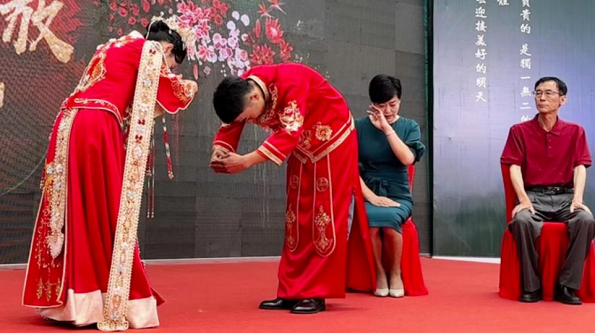
On May 26, 2023, under the guidance of the China Sexually Transmitted Diseases and AIDS Prevention and Control Associati...
May 29, 2023 Read Details
Health experts are calling for sex education to be included in China’s school curriculum, saying the lack of forma...
Aug 10, 2016 Read Details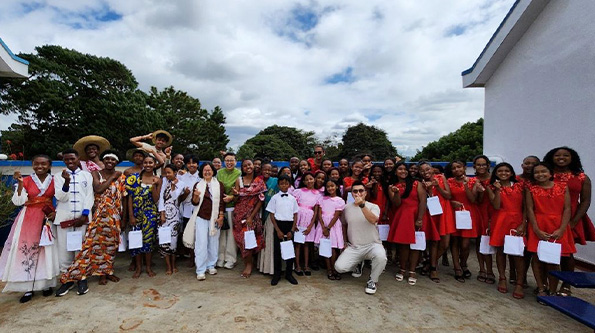
Recently, under the auspices of the China NGO Network for International Exchanges (CNIE), the Beijing Changier Education...
May 23, 2025 Read Details